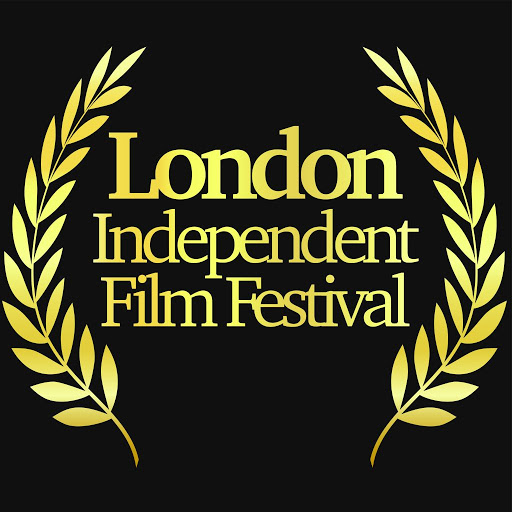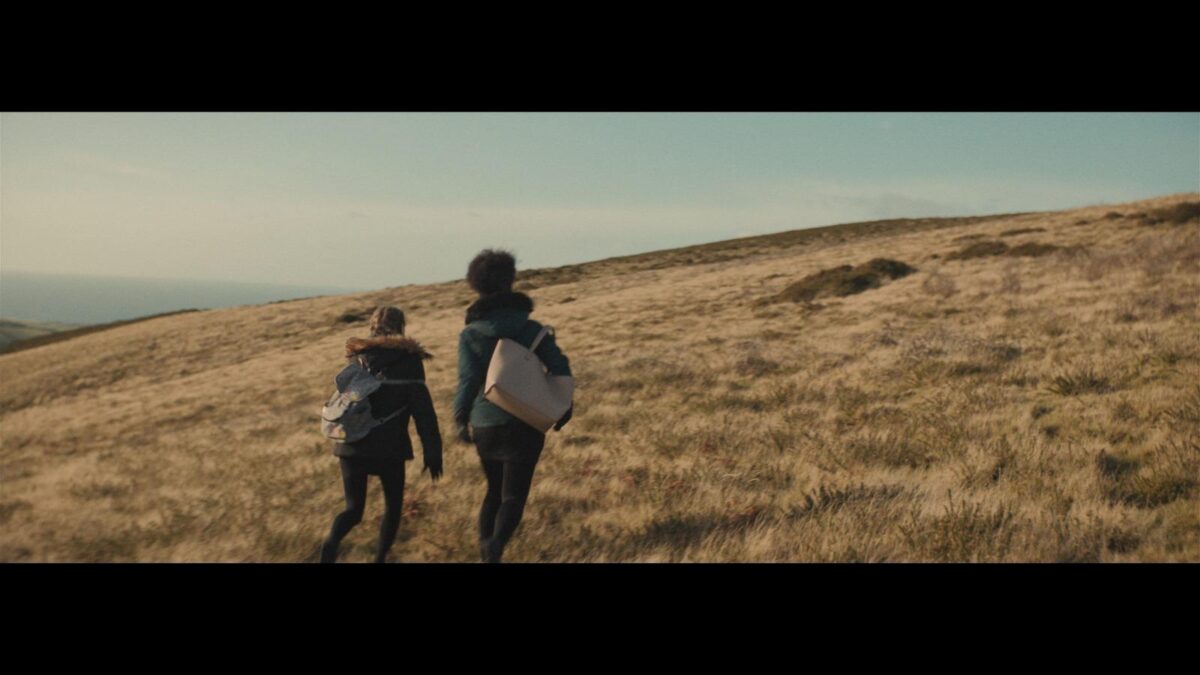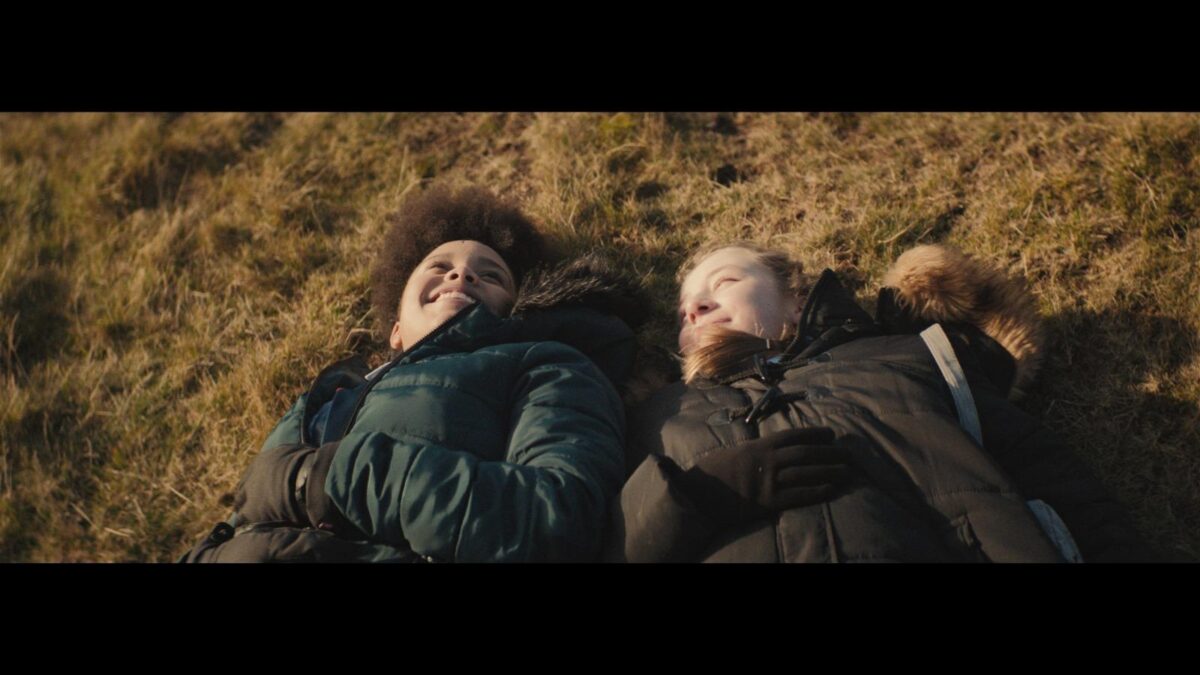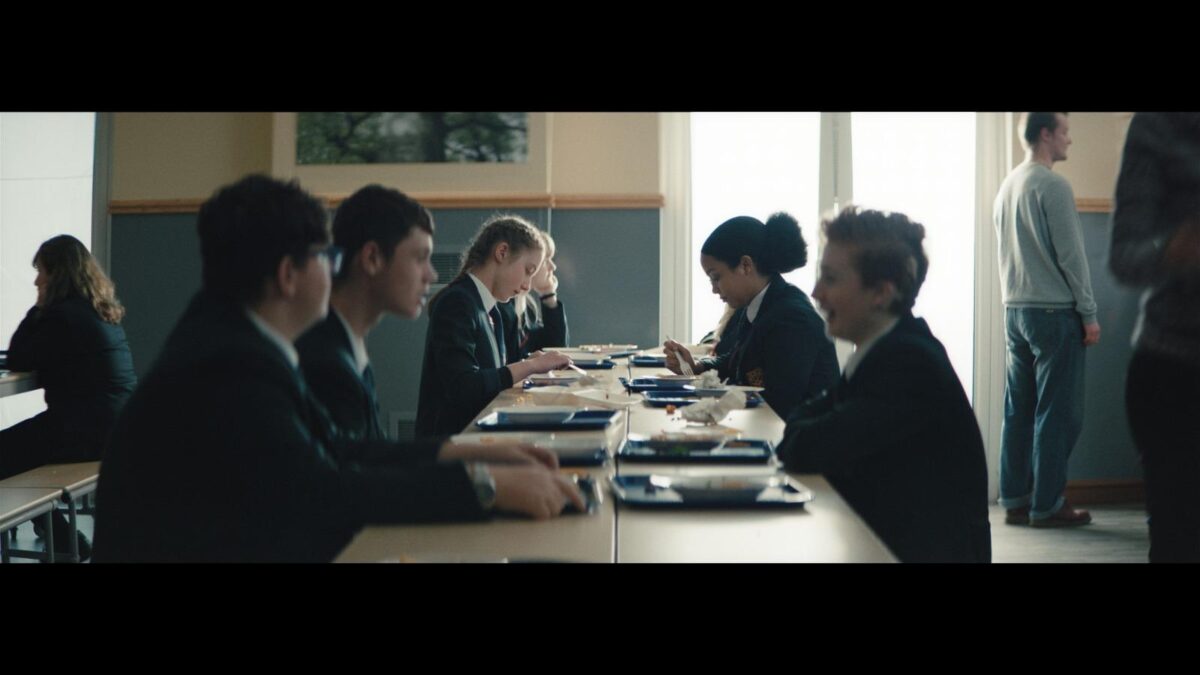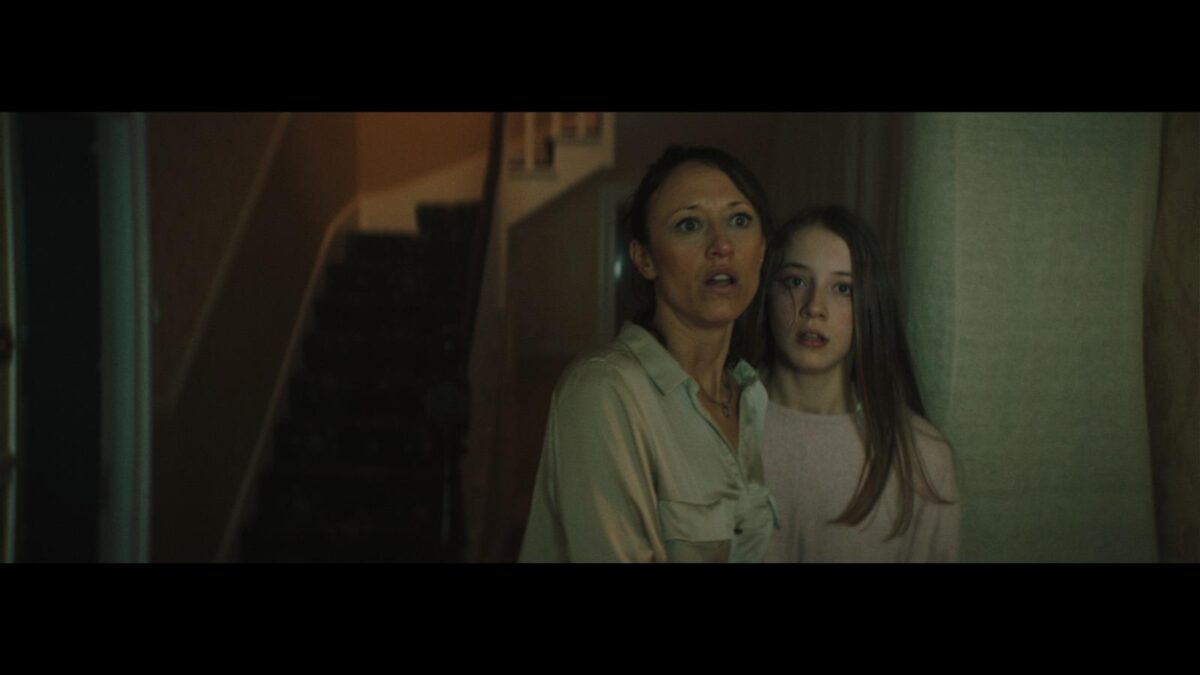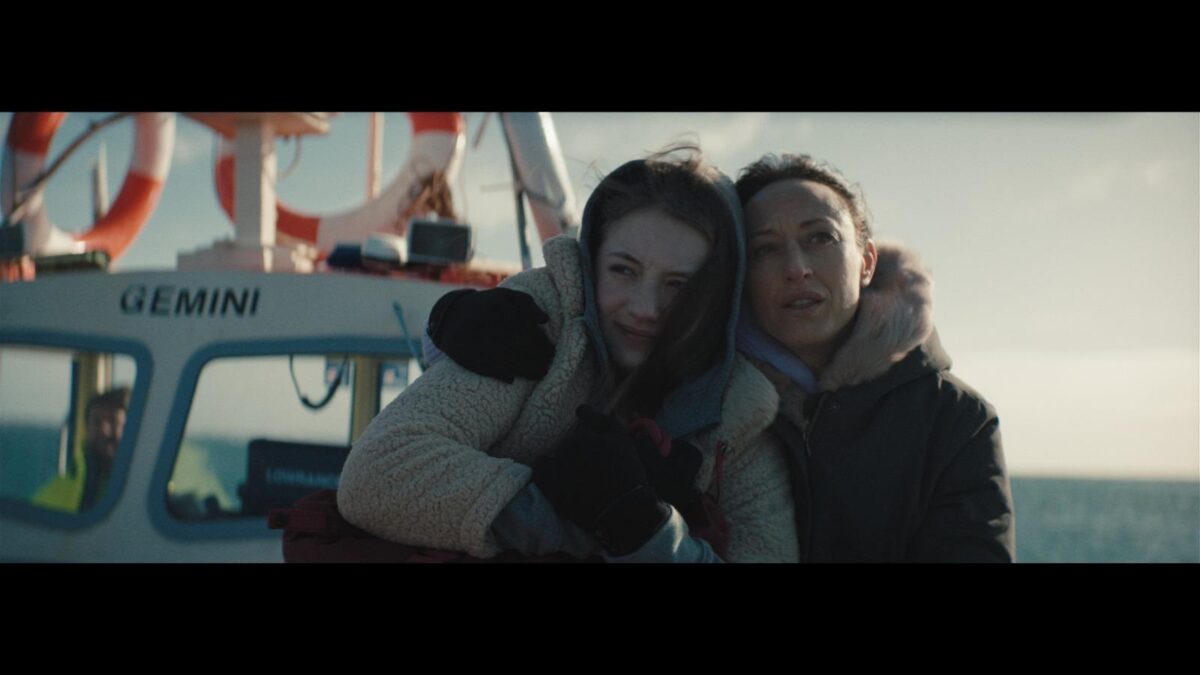Athena Mandis focuses on the issue of domestic abuse in her new short LOSING GRACE.
The short plays as part of the online London Independent Film Festival 2021.
Tickets available at:
Film And TV Now spoke with the film-maker about her work and the issues surrounding it.
FILM AND TV NOW: The film attempts to highlight a very important issue which affects families and women and the children. What was the start-off point for the script?
ATHENA MANDIS: Interestingly our starting point was to look at the relationship between a mother’s need to protect a child. It was in exploring this relationship and this dynamic that we developed a story that highlights the harrowing reality for a lot of families – in particular women and children.
FTVN: We learn some very concerning and disturbing statistics at the end of the film. How much research did you do before writing the script?
AM: As the story developed to become about domestic abuse, we found ourselves immersed in the world. Survivors began to contact us and share their stories, people we knew began to disclose their story. All of this began to weave itself into the project.
FTVN: Tell us about your cast.
AM: Liz Farahadi who plays the mother, Louise, first approached me with the idea of making a short together – one that looked at the complex relationship between mother and daughter.
So, the story was developed together. It just so happened that her daughter Tabatha, was a really good actor so it was a no-brainer to be able to work with her. We then wanted to cast Helen from the Isle of Man and to have Helen somehow suggest her own sense of ‘outsideness’.
So, we felt that she should not be white Anglo Saxon. And Emma was suggested to us and was perfect. The role of the father who only appears at the end, we wanted to see if we could have an actor some gravitas, for this role we worked with a casting director, Janis Jaffa who put as in touch with Grant Burgin – who was perfect.
FTVN: Tell us about your production team.
AM: From very early on, we wanted to actively recruit female HoD and to give opportunity to talent on the island where possible.
Here, the aim would be that people could step up into the roles if need be. So, our Production Manager, Lain Sheriff, who was an events producer for the Isle of Media on the Isle of Man, transferred over and learnt on the job.
I’d like to think she felt supported and not flung in at the deep end. Our producer Aradna Tayal (who unfortunately had to step off at the last minute) was instrumental in spearheading this initiative. So, we looked to actively recruit people we didn’t usually work with.
FTVN: The visual style of the film is very noirish. Tell us about your working relationship with your cinematographer and were there any filmic influences you had when developing the look for the film?
AM: It was wonderful working with Beatriz Delgado Mena, our DP. We met on Facebook and then spent a year in conversation developing the visual aesthetic of the film.
I found Andrey Zvyagintsev’s framing in The Return quite inspirational. I was also keen to play with long takes which Beatriz was keen to explore. We talked about tones, and yes, the thriller element was part of the visual development as we wanted to explore the idea of a poetic thriller.
I think what was important to us was that this felt cinematic and not social realist television – not that there is anything wrong with that – but we wanted to also work with the beauty of the island, otherwise there would be no point in shooting it there.
FTVN: Where did you shoot and for how long?
AM: We filmed on the Isle of Man in February 2020. This was a 4-day shoot.
FTVN: How did you raise finance for the film?
AM: The million-dollar question. We applied to the usual places – BFI Network, Genera, but were unsuccessful. Nevertheless, one has to soldier on.
We crowdfunded through Greenlit where we raised 10k but also were able to put the project out there and in turn this led to raising an extra 5k from the IOM ARTS COUNCIL and probably 5k in kind in accommodation and location costs. We had further 3k donation from The Gifted charity. The rest was VAT returns and private investment.
FTVN: Tell us about the music used in the film and who is the harpist we see briefly at one point?
AM: The music was very important to the project and we began working on this early on in the development process. Donna McKevitt is the composer and Mera Royal is the Manx harpist whom we met at an Isle of Media event in London (as luck would have it).
I wanted to explore the idea of a chorus, a witness to the events. That these stories happen – all too often – and they are not witnessed and therefore the systems in place to safeguard the people affected are actually instruments of further pain. So, the harpist plays that role.
FTVN: Are there plans to show the film to affected families, students, teenagers and related charities as a point of reference?
AM: Yes. We are working with a couple of charities to do this The Court Said and Mental Abuse Matters. We are hoping that we can raise more money to enable this phase of the work.
We want to create a series of forum screenings where the work can serve as a spring-board to discuss the issues the film raises and hopefully map out a path for better support.
FTVN: The film has been playing at the London Independent Film Festival 2021. How important is the festival world to film-makers like yourself?
AM: Super important.
LIFF have been great in trying to foster a community with this current online reality we all find ourselves in. Because it’s the people you meet at a festival that can form bonds for future work etc.
It’s all very well making a film, but you also need to get it seen, so find an audience for the work is very important, and festivals are a great way of seeing the impact and reception the work is getting. This also helps one understand what the work is.
In addition, festivals are great at raising a film-maker’s profile, you have a platform to talk about your work, and you never know who is listening, and with whom you resonate. They are also fun!
FTVN: Diversity and gender are big issues in the film and television world at the present time. Where do you feel the industry can improve and in light of what has happened because of #TimesUp and #MeToo initiatives, what has already improved for female film-makers and technicians working in the industry?
AM: It’s great to see this aspect of film opening up. How permanent this is or how “gimmicky” it is, time will tell.
One sees a lot more female film-makers on the scene now, when I started it was very rare and probably why it’s taken me longer to get my work out there. It still feels like ‘permission’ is being granted, a kind of allowance given for all film-makers classed in the ‘diversity’ box. It’s nevertheless a welcome start.
FTVN: What issues and themes would you most like to explore in your future work?
AM: I have a few projects in the pipeline and they all happen to be strong female-led narratives.
A short – ‘Daughter’ – that is due to come out soon written by Jo Harper deals with adoption and belonging; a feature film, ‘Xenos’, deals with displacement and belonging; ‘Polly’ a feature I am working with Liz Farahadi, deals with toxic masculinity and looks at the last 24hrs of a sex worker; The Return a short, looks at displacement; ‘My Life in Pieces’ is a 10 part drama that looks at the impact of abuse on one’s life. So these are currently the issues I am looking at. After which I want to do comedy!
FTVN: How has the pandemic affected your development and evolution as a film-maker?
AM: I feel very lucky. I am a lecturer in film practice at Queen Mary University, so I have continued to work.
We have been able to film during the pandemic, we shot ‘Daughter’ in September and the rest has been development. In many ways the pandemic has provided a little more time and space for this to happen.
FTVN: Finally, what are you most proud of about this film?
AM: I love the fact we totally went for it and didn’t wait for anyone’s permission to make it. Risky, but worth it.
I am super proud of everyone on the team who really pulled together to make this ambitious project. I am proud that survivors who have watched the film, have resonated with the work and have been moved by it. This is very humbling – as a film-maker that is the ultimate goal and one you can never guarantee.



